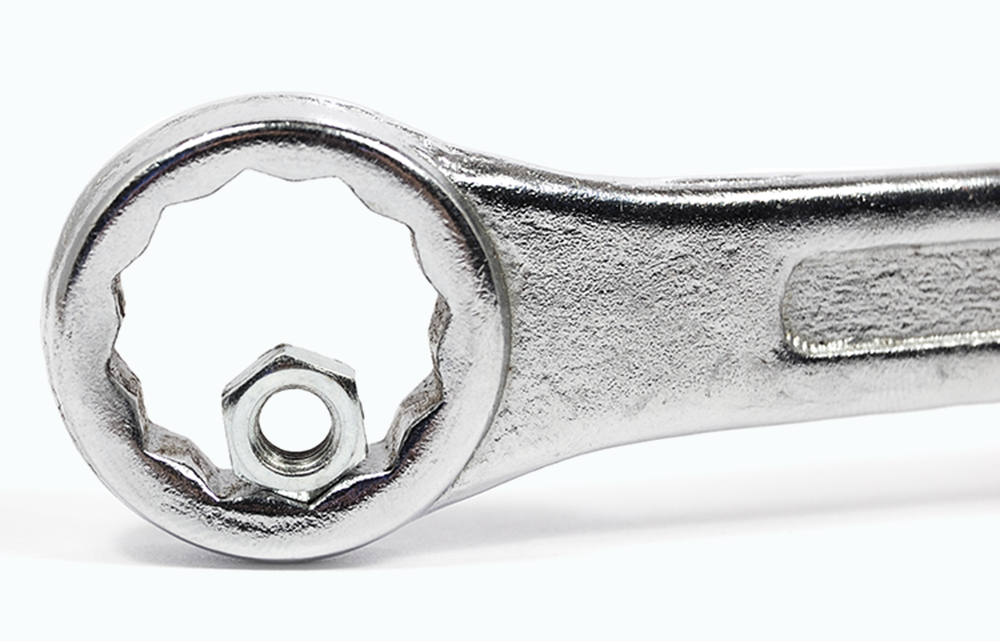Is CCTV Installation a Good Job?

Introduction: Exploring a Career in CCTV Installation
With the rise of security concerns across residential, commercial, and public spaces, the demand for CCTV installation has soared in recent years. CCTV installers are now essential in providing surveillance solutions that help protect people and property. But what makes CCTV installation a good job, and what can one expect from this career? This article explores CCTV installation as a profession, covering everything from daily responsibilities and required skills to job prospects and salary expectations. By the end, you’ll have a clear picture of whether a career in CCTV installation is right for you.
What Does a CCTV Installer Do?
The role of a CCTV installer is versatile and involves various responsibilities, from the initial system setup to ongoing maintenance and troubleshooting. Installers typically work with a wide range of CCTV systems, configuring them to meet each client’s unique security needs. They might design systems that cover critical areas or secure larger premises, such as shopping centres, office buildings, and residential complexes. Beyond installation, cctv engineer jobs are responsible for managing data storage, conducting repairs, and training clients on system usage. This hands-on role provides a mix of technical work and customer interaction, making it an ideal career for those interested in technology and security.
In addition to standard setups, installers might work with advanced systems that feature remote monitoring capabilities or smart integration with other security systems. For example, some CCTV setups connect directly to a security company’s control room, providing instant alerts in the event of an emergency. Others may integrate with smart home systems, allowing clients to monitor their property directly from a mobile app.
CCTV Systems: An Overview
CCTV systems come in various forms, each suited to different environments. Traditional analog systems, though older, are still reliable and offer affordable solutions for smaller setups, such as small businesses or standalone buildings. Digital and IP-based systems, however, are more common in modern installations. These advanced systems allow for features like remote viewing, high-definition video, and secure data storage options, making them popular in commercial and industrial environments.
Beyond basic analog and IP systems, CCTV systems today might include wireless options, infrared technology, and night vision capabilities. Installers working with these advanced systems must understand the various costs and technical intricacies of each type and be able to advise clients on which system best meets their surveillance needs.
Understanding CCTV Cameras
CCTV cameras come in various types, each serving specific purposes within a surveillance system. Dome cameras, for instance, are typically installed indoors and provide discreet coverage without drawing attention. Bullet cameras, on the other hand, are more robust and often used for outdoor surveillance due to their long-range capabilities and resistance to environmental elements.
Specialised CCTV cameras like PTZ (pan-tilt-zoom) cameras allow for remote control, enabling operators to adjust the camera’s angle and zoom in on specific areas. This versatility makes PTZ cameras suitable for monitoring larger spaces, such as car parks, shopping centres, or stadiums. For installers, understanding each type of camera and its appropriate application is crucial to building effective CCTV systems that align with clients’ needs.
What is a CCTV System?
At its core, a CCTV system comprises several components, including cameras, wiring, data storage, monitors and software for monitoring and managing footage. Together, these elements enable continuous surveillance and real-time monitoring, which is particularly valuable for deterring and documenting criminal activity. CCTV systems have applications across a variety of environments, from public spaces to private businesses and homes, underscoring the essential role they play in today’s security-focused world.
Additionally, many modern CCTV systems include cloud storage options for secure, remote access to footage. This can be particularly useful in law enforcement scenarios and crime, where evidence needs to be reviewed remotely or stored off-site for security purposes. Such innovations increase the reliability and scope of CCTV systems, making them indispensable tools for modern security.
The Role of a CCTV Installation Business
Many CCTV installers work within a CCTV installation business that serves a wide range of clients, from homeowners and small businesses to large corporations and government facilities. These businesses typically provide end-to-end solutions, handling everything from initial site surveys and system design to installation and post-installation support. Working for a CCTV installation business provides installers with a structured environment, diverse projects, and steady work across multiple industries, helping them develop broad expertise and reliable income.
Some installation businesses even offer round-the-clock services, ensuring their clients receive immediate assistance in the event of technical issues or security breaches. This level of service requires skilled technicians who can quickly diagnose problems and implement solutions. For those interested in a fast-paced and varied work environment, joining a CCTV installation company or business offers both structure and growth opportunities.
CCTV Technology and Its Evolution
As CCTV technology continues to advance, so do the expectations for installers. Today’s systems feature high-definition cameras, infrared technology for night vision, motion detection, and even artificial intelligence that can identify specific events or objects within a scene. This evolution has made CCTV installation a constantly changing field, requiring installers to stay up-to-date with the latest industry trends, such as networking solutions for integrating multiple systems across sites.
One of the most exciting advancements is the integration of CCTV with other smart security solutions. For instance, a modern CCTV system might include facial recognition capabilities or connect with an access control system, allowing businesses to track and manage personnel and visitor movements within a facility.
Is CCTV Installation a Secure Job?
The demand for CCTV engineers and installers remains high, driven by the continuous need for security in the country in both public and private sectors. As security continues to be a top priority, CCTV installation is widely regarded as a stable and resilient career. In the UK, CCTV installation has seen consistent demand as businesses, residential complexes, and even public infrastructure rely on these systems to monitor and protect their premises. This high demand provides installers with steady work and a degree of job security that many other fields cannot offer.
Legal and Regulatory Requirements in CCTV Installation
CCTV installation comes with a range of legal and regulatory requirements that vary depending on the setting. In public and shared spaces, for example, installers must ensure that cameras comply with the UK’s data protection laws, which govern the use of surveillance equipment and the storage of footage. Knowledge of these regulatory requirements is essential, as installers need to advise clients on best practices to avoid legal complications. For example, it’s critical to inform clients about the need for visible signage alerting people to the presence of CCTV, as required by law.
Skills Needed for Success in CCTV Installation
Becoming a successful CCTV installer requires a blend of technical and interpersonal skills. Installers must understand wiring, camera positioning, hardware, and data management, but they also need to communicate effectively with customers to ensure they’re comfortable with their new system. Problem-solving skills are essential, as installers often troubleshoot on the spot to adapt systems for optimal performance.
For instance, when dealing with a complex CCTV system in a multi-level building, an installer must plan strategically to cover key areas while managing electrical wiring challenges and avoiding blind spots. Developing these skills can make a significant difference in career progression and job satisfaction.
Training and Qualifications for CCTV Installers
While formal degrees aren’t always required, training is essential for anyone entering the CCTV installation field. Many installers complete courses in electronic engineering or security system installation, gaining the knowledge needed for complex setups. Additional certifications, particularly in data security, network integration, and system troubleshooting, can significantly enhance career prospects. For individuals interested in higher-level roles, certifications in project management can be beneficial, as they prepare installers for roles involving team oversight and system design.
Benefits of Working in CCTV Installation
The benefits of working as a CCTV installer are numerous. This hands-on job combines technical expertise with client interaction, creating a varied workday. Installers also enjoy a degree of independence, often working in the field rather than in an office setting. This fieldwork provides installers the chance to work with different clients and businesses, from private residences to large corporate campuses.
Additionally, CCTV installation jobs can offer high job satisfaction due to the meaningful nature of the work. Installers contribute to the safety and security of others, which can be rewarding in its own right. This sense of purpose, combined with a stable income, makes CCTV installation a desirable career for many.
Challenges and Downsides of CCTV Installation
While rewarding, CCTV installation has its challenges. Installers must handle physically demanding tasks, like running cables and positioning cameras, often in awkward or high locations. The cost of maintaining a reliable set of tools and equipment can add up, as advanced technology requires regular updates and replacements. Finally, irregular hours and on-call shifts can be demanding, especially when clients need urgent assistance. These challenges, however, are manageable for those who are committed to the job and take pride in their work.
Career Progression in CCTV Installation
The CCTV installation industry offers ample room for career growth. Experienced installers may advance to roles like CCTV operator or project manager, where they manage installations or oversee security systems on a larger scale. Some may even start and operate their own CCTV installation business after gaining enough experience, opening doors to entrepreneurial opportunities. This field provides a clear path for those eager to build a lasting, rewarding career in security.
Conclusion: Is CCTV Installation a Good Job?
In conclusion, CCTV installation is a robust and fulfilling career that offers job stability, meaningful work, and diverse opportunities for growth. With steady demand for security solutions, this role combines technical skills with the chance to make a positive impact on clients’ lives. While there are challenges, such as physical demands and regulatory requirements, the job provides a satisfying balance of hands-on work, client interaction, and financial security. For those with a technical background and a passion for safety, CCTV installation is indeed a good job.
Every Job is Easier if You Have the Right Tools
